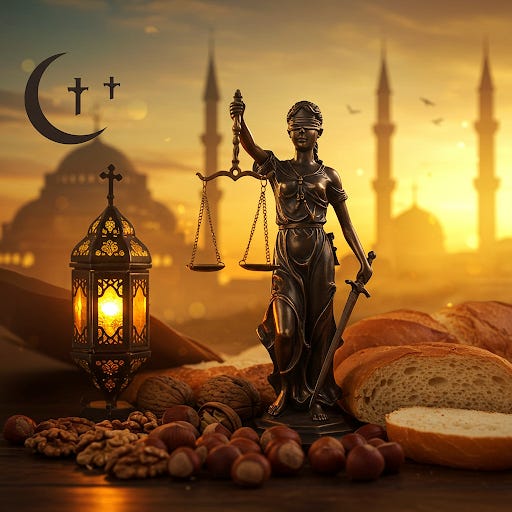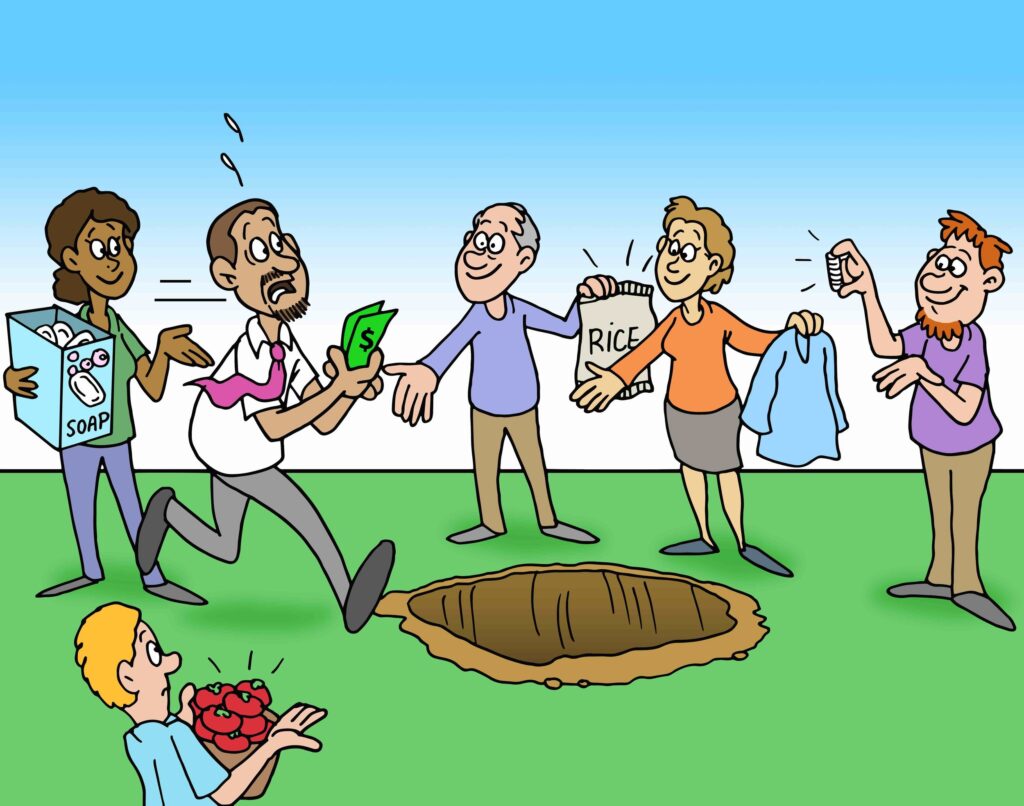
Nadia Hilou, the Israeli politician and first Christian Arab woman in the Knesset, condemned the violence in Gaza on both sides. She passed away from cancer before the conflict escalated to its current magnitude. Hilou argued that anti-Muslim sentiment was as dangerous as hatred against Jews or Israel. Amid intense political debate, she emphasized the spiritual dimensions of the conflict, asserting that interfaith understanding was a patriotic priority essential for peace. Critics questioned her ability to effectively represent Arab interests within the Israeli political establishment. In a deadly political climate, she remained a steadfast advocate for peaceful collaboration.
In times of heightened tragedy and chaos, the coinciding observances of Ramadan and Lent speak to Hilou’s call. Amid crises of their own day, early Christians developed and deepened their observance of Lent as a time of self-examination and fortified faith. Ramadan honors the revelation of the Quran to Prophet Muhammad amidst social injustice and oppression in Mecca.
For Christians, Lent is preparation for the Resurrection. For Muslims, Ramadan is preparation for Eid al-Fitr, renewal and closeness to God. Both observances emphasize introspection, penance, community, and acts of devotion.
Across both traditions, faith and justice are intertwined—two sides of the same coin, though their expressions may differ. Faith without justice makes us more spiritual than God (Allah); justice without faith presumes it is self-evident, as though liberty and equality don’t require faith in their own right. Striving for justice is an ethical duty and an expression of faith, grounded in divine presence and guidance. Associating Islam with jihad is like associating Christianity with the Crusades.
Contrary to stereotypes, the Quran demonstrates benevolence, respect, and accommodation toward non-Muslims, including those who would have been considered “pagans” or polytheists at the time of its revelation. “There shall be no compulsion in religion” (Quran 2:256) affirms that faith cannot be forced upon anyone, emphasizing freedom of belief. Similarly, the Quran acknowledges diversity as part of divine wisdom: “To each of you We prescribed a law and a method… If Allah had willed, He would have made you one nation” (Quran 5:48). While the theologies of Lent and Ramadan differ, the shared practice of penance forms a significant bond, precluding separation through judgment and serving as a reminder that such judgment ultimately belongs to God alone.
In Muhammad’s last sermon delivered in the 7th century, the prophet spoke in terms remarkable for their time, just as timely today:
“O People, lend me an attentive ear, for I know not whether after this year, I shall ever be amongst you again. Therefore, listen to what I am saying very carefully and take these words to those who could not be present today. All people are from Adam and Eve. An Arab has no superiority over a non-Arab nor a non-Arab has any superiority over an Arab; also a white has no superiority over black nor a black has any superiority over white except by piety (taqwa) and good action.”
Yahia Lababidi, an Arab-American of Palestinian descent, expresses the spirit of Arab-Israeli Hilou in his poem “Open Letter to Israel” if not her politics. He first cites Nietzsche: “Those who fight monsters should see to it that, in the process, they do not become a monster.”
“Tell me, what steel entered your heart.
what fear made you rabid,
what hate drove out pity?
”How could you forget
that how we fight a battle
determines who we become?
When did you grow reckless
with the state of your soul?
“We are responsible for our enemy,
compassion is to consider the role
that we play in their creation.
“If you prick us do we not bleed?
–if you poison us, do we not die?
And if you wrong us, shall we not revenge?
“Strange, how one hate enables another;
how they are like unconscious allies,
darkly united in blocking out the Light,
“Yes, we can lend ideas to our hearts, but ideals–
Peace, Justice, Freedom–require our entire lives
and, all who are tormented by such ideals
must learn to make an ally of humility. . . .
“We can still begin, again, and must.”
Blessed Ramadan (Ramadan Mubarak)—and a blessed Lent!
Notes and reading
Nadia Hilou – For more on Hilou see “In praise of a brave Christian Palestinian woman,” passim –The Arab Daily News (February 27, 2015); “Israeli-Arab, female and headed for the Knesset,” The Times of Israel (January 22, 2013).
The Study Quran: A New Translation and Commentary – Seyyed Hossein Nasr, Editor-in-Chief (2015). A groundbreaking work by a team of Islamic studies scholars of different backgrounds. Great for exploring the history of interpretation for any passage in the Quran.
“The last sermon of Prophet Muhammad” – Medium (June 3, 2020).
Yahia Lababidi – Palestine Wail (2024) – “the jailer is never free” – Poetry from Palestine Wail has been translated into Arabic, French, Malayalam, Gaeilge, Spanish, and Dutch, and won numerous awards. See his most recent book, What Remains To Be Said: Aphorisms: New & Selected (2025).
Lababidi’s grandmother’s family, the Dajanis, were the official custodians of the Tomb of the Prophet David in Jerusalem since 1529, ended when Israel seized the site in 1948.
The Islamic Jesus: How the King of the Jews Became a Prophet of the Muslims – Mustafa Akyol (2017). Akyol is a prominent Turkish journalist, author, and political commentator who writes on liberal democracy and a moderate interpretation of Islam, known for books like Islam Without Extremes and Reopening Muslim Minds.
Islam Through Western Eyes: From the Crusades to the War on Terrorism – Jonathan Lyons (2012). Lyons is known for his work on the history of science in medieval Islamic civilization and the relationship between Islam and the West. He spent twenty years as a foreign correspondent and editor for Reuters, much of it in the Islamic world.
Allah, Liberty and Love – Irshad Manji (2011). See particularly what is said about the significance of ijtihad—independent reasoning in Islamic jurisprudence, and a principal method of discussion, debate, and dissent. – Manji is the founder of the Moral Courage College, and a Senior Fellow at the Oxford Initiative for Global Ethics and Human Rights, UK/Los Angeles. Her more recent book, Don’t Label Me: How to Do Diversity Without Inflaming the Culture Wars (2020).
Bread and Wine: Readings for Lent and Easter (2003) – A collection of readings from various Christian authors including C.S. Lewis, G.K. Chesterton, Dorothy Day, and others.
Tip-Off #186 – Where are we going?
Tip-Off #185 – What do you want?
About 2 + 2 = 5




